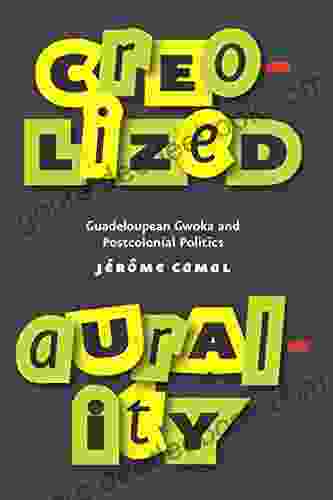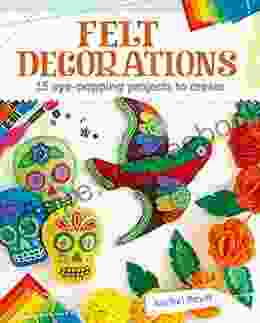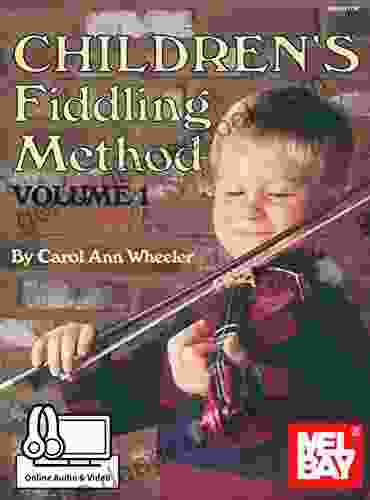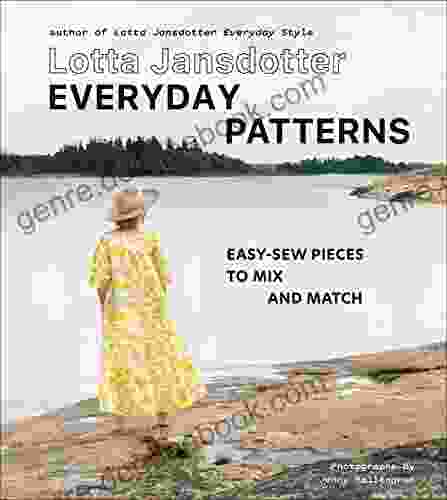Guadeloupean Gwoka and Postcolonial Politics: A Comprehensive Analysis

Abstract
This article delves into the intricate relationship between Guadeloupean Gwoka music and the political landscape of the island post-colonization. Gwoka, a percussive and rhythmic music form, has served as a powerful tool for cultural expression, resistance, and social commentary in Guadeloupe, a French overseas department in the Caribbean. By examining the history, aesthetics, and socio-political implications of Gwoka, this study sheds light on its multifaceted role in shaping Guadeloupean identity and challenging colonial legacies.
Guadeloupe, an archipelago in the Lesser Antilles, has a complex and tumultuous colonial history that has left an enduring imprint on its culture and society. Gwoka, an indigenous music genre, has emerged as a potent symbol of Guadeloupean resistance and resilience, embodying the island's struggles for autonomy and cultural preservation. This article explores the ways in which Gwoka has been employed as a vehicle for political expression, social critique, and the articulation of Guadeloupean identity in the postcolonial era.
4.3 out of 5
| Language | : | English |
| File size | : | 1202 KB |
| Text-to-Speech | : | Enabled |
| Screen Reader | : | Supported |
| Enhanced typesetting | : | Enabled |
| Print length | : | 244 pages |
| Lending | : | Enabled |
History and Aesthetics of Gwoka
Gwoka's origins can be traced back to the African slaves brought to Guadeloupe during the transatlantic slave trade. The music emerged as a blend of African rhythms, French Creole lyrics, and local cultural influences. Traditionally, Gwoka is performed by a group of musicians known as a "tambouyé," featuring a lead singer, a chorus, and percussionists playing the ka (a double-headed drum),boula (a bass drum),and ti-bwa (a friction stick).
Gwoka's aesthetics are characterized by its infectious rhythms, intricate drumming patterns, and expressive vocals. The lyrics often address themes of love, loss, social injustice, and the history of slavery and colonialism. Gwoka performances are typically held at social gatherings, community events, and cultural festivals, providing a space for communal expression and catharsis.
Gwoka as Political Resistance
During the colonial period, Gwoka was suppressed by the French authorities, who viewed it as a threat to their power and control. Despite the ban, Gwoka continued to be practiced in secret, becoming a symbol of Guadeloupean resistance and cultural self-affirmation. In the postcolonial era, Gwoka has played a pivotal role in political movements and protests, giving voice to demands for greater autonomy and social justice.
Gwoka musicians have used their songs to critique the ongoing legacy of colonialism, denounce economic exploitation, and promote cultural pride. They have also played an active role in political campaigns, mobilizing support for progressive candidates and raising awareness about social issues. Gwoka's political significance is evident in its frequent use at protests, rallies, and other forms of political action.
Gwoka and Cultural Identity
Beyond its political implications, Gwoka has been instrumental in shaping and preserving Guadeloupean cultural identity. It has served as a repository for Guadeloupean history, traditions, and values, providing a sense of continuity and belonging for the island's inhabitants. Gwoka performances and festivals are considered important cultural events that bring communities together and strengthen their bonds.
Gwoka has also played a role in the construction of a distinct Guadeloupean aesthetic and artistic expression. Its rhythms and melodies have influenced other genres of Guadeloupean music, such as zouk and dancehall, and have been incorporated into contemporary artistic productions, including theater, dance, and film. Gwoka has become a symbol of Guadeloupean creativity and innovation, promoting the island's cultural heritage on the international stage.
Postcolonial Politics and Gwoka Performance
In the postcolonial era, Gwoka has continued to evolve and adapt to changing socio-political conditions. The advent of new technologies and the rise of global media have transformed the way Gwoka is produced, disseminated, and consumed. Gwoka musicians now use social media to connect with their audience, promote their work, and engage in political debates.
The postcolonial period has also witnessed the emergence of new forms of Gwoka performance that blend traditional elements with contemporary aesthetics and themes. These hybrid forms have attracted a wider audience and helped to popularize Gwoka beyond its traditional geographical boundaries. However, they have also sparked debates about the authenticity and legitimacy of Gwoka, highlighting the ongoing tensions between tradition and modernity.
Guadeloupean Gwoka stands as a testament to the resilience and creativity of the Guadeloupean people. Its music, aesthetics, and socio-political implications have shaped the island's postcolonial identity and continue to play a vital role in contemporary Guadeloupean society. As a vehicle for political expression, cultural preservation, and social commentary, Gwoka has empowered Guadeloupeans to resist colonial legacies, affirm their cultural heritage, and envision a more just and equitable future.
References
* Bellegarde-Smith, P. (2008). Gwoka: The Vibration of History. Temple University Press. * Clerge, P. (2004). La Musique Gwoka en Guadeloupe: Un Temoin de l'Esclavage et de la Resistance. Editions L'Harmattan. * Houbert, J. (2001). La Guadeloupe: Histoire, Culture, Economie. Karthala Editions. * Jackson, J. (2020). The Cultural Politics of Resistance in Guadeloupe: Music, Colonialism, and Identity. Routledge. * Larose, C. (2015). Gwoka: A Call for Global Justice. University Press of Mississippi.
4.3 out of 5
| Language | : | English |
| File size | : | 1202 KB |
| Text-to-Speech | : | Enabled |
| Screen Reader | : | Supported |
| Enhanced typesetting | : | Enabled |
| Print length | : | 244 pages |
| Lending | : | Enabled |
Do you want to contribute by writing guest posts on this blog?
Please contact us and send us a resume of previous articles that you have written.
 Page
Page Text
Text Story
Story Genre
Genre Reader
Reader E-book
E-book Magazine
Magazine Newspaper
Newspaper Paragraph
Paragraph Sentence
Sentence Glossary
Glossary Annotation
Annotation Manuscript
Manuscript Scroll
Scroll Codex
Codex Narrative
Narrative Biography
Biography Memoir
Memoir Encyclopedia
Encyclopedia Dictionary
Dictionary Thesaurus
Thesaurus Character
Character Borrowing
Borrowing Archives
Archives Periodicals
Periodicals Research
Research Scholarly
Scholarly Lending
Lending Reserve
Reserve Academic
Academic Journals
Journals Reading Room
Reading Room Rare Books
Rare Books Interlibrary
Interlibrary Study Group
Study Group Dissertation
Dissertation Storytelling
Storytelling Awards
Awards Theory
Theory Textbooks
Textbooks Emily Colin
Emily Colin Theodore Rolin Hansen
Theodore Rolin Hansen Islam Choudhury
Islam Choudhury Baby Professor
Baby Professor Katie Mitchell
Katie Mitchell David R Ross
David R Ross Enderson Rafael
Enderson Rafael Joe B Fulton
Joe B Fulton Lynette Russell
Lynette Russell Winston Groom
Winston Groom Peter Hartcher
Peter Hartcher Charles Nicholl
Charles Nicholl Catherine Fet
Catherine Fet Michael Bremer
Michael Bremer Matthias J
Matthias J Kate Lloyd
Kate Lloyd Elisa S Amore
Elisa S Amore Lawrence Goldstone
Lawrence Goldstone Jacqueline Langwith
Jacqueline Langwith Will Sommer
Will Sommer
Light bulbAdvertise smarter! Our strategic ad space ensures maximum exposure. Reserve your spot today!

 E.M. ForsterCases of Innovation in Environmental Management: Eco-Efficiency in Industry...
E.M. ForsterCases of Innovation in Environmental Management: Eco-Efficiency in Industry... Ray BlairFollow ·10.9k
Ray BlairFollow ·10.9k Hugh ReedFollow ·5.9k
Hugh ReedFollow ·5.9k Beau CarterFollow ·9.6k
Beau CarterFollow ·9.6k Trevor BellFollow ·18.4k
Trevor BellFollow ·18.4k Aaron BrooksFollow ·17.6k
Aaron BrooksFollow ·17.6k Jack LondonFollow ·2.9k
Jack LondonFollow ·2.9k Jean BlairFollow ·13.4k
Jean BlairFollow ·13.4k Howard PowellFollow ·17.9k
Howard PowellFollow ·17.9k

 Rodney Parker
Rodney ParkerBasics Beginner Guide To Stage Sound
Start with a good source. The...
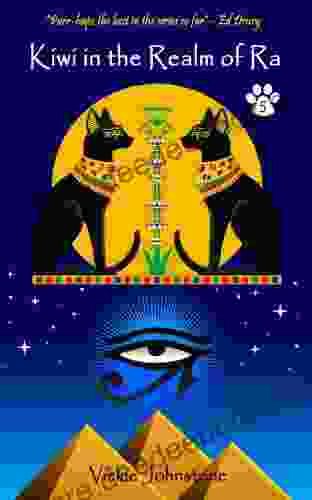
 Glenn Hayes
Glenn HayesKiwi in the Realm of Ra: Exploring the Mystical Kiwi...
Origins and...

 John Grisham
John GrishamAdvances In Marine Biology Volume 71
Unveiling the Hidden Wonders...
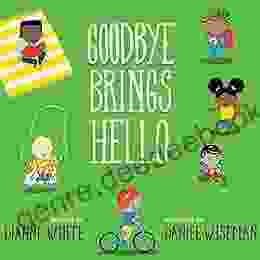
 Edison Mitchell
Edison MitchellGoodbye Brings Hello: Embracing the Transformative Power...
In the tapestry of life, endings...
4.3 out of 5
| Language | : | English |
| File size | : | 1202 KB |
| Text-to-Speech | : | Enabled |
| Screen Reader | : | Supported |
| Enhanced typesetting | : | Enabled |
| Print length | : | 244 pages |
| Lending | : | Enabled |


